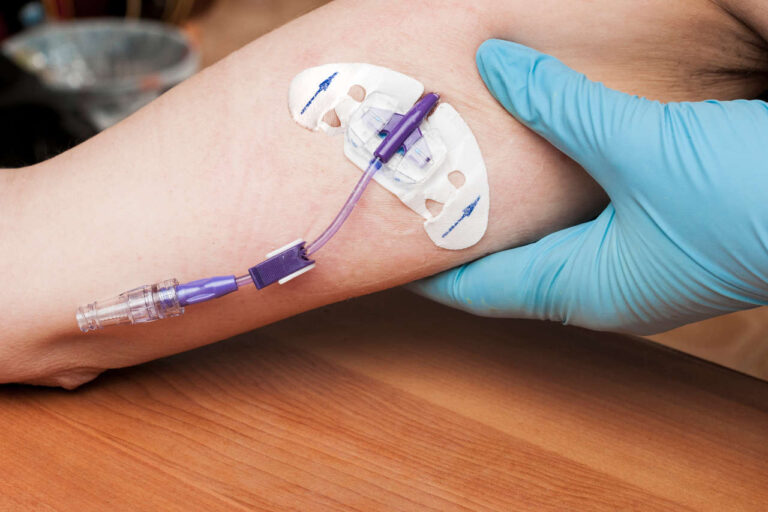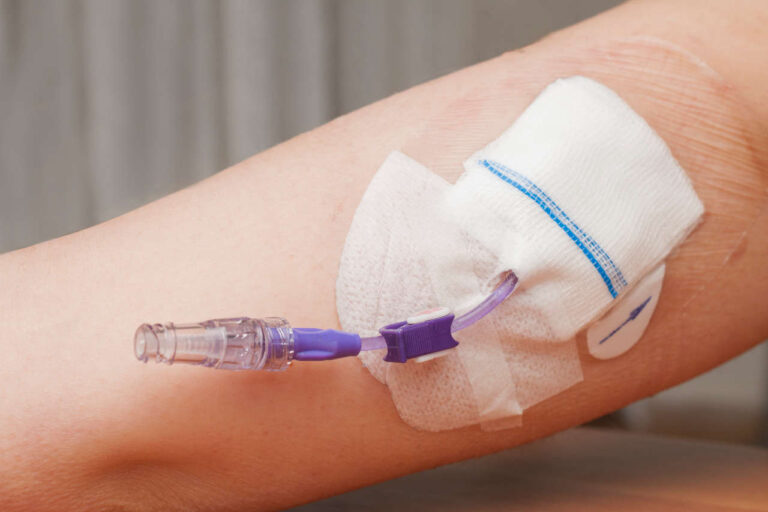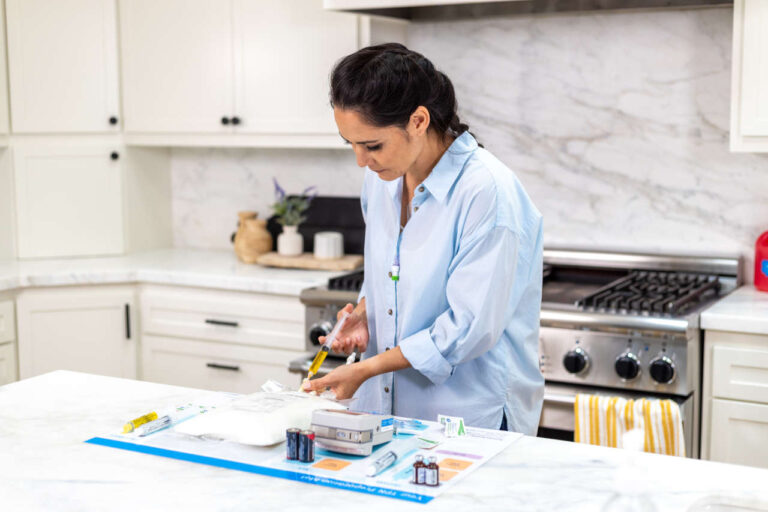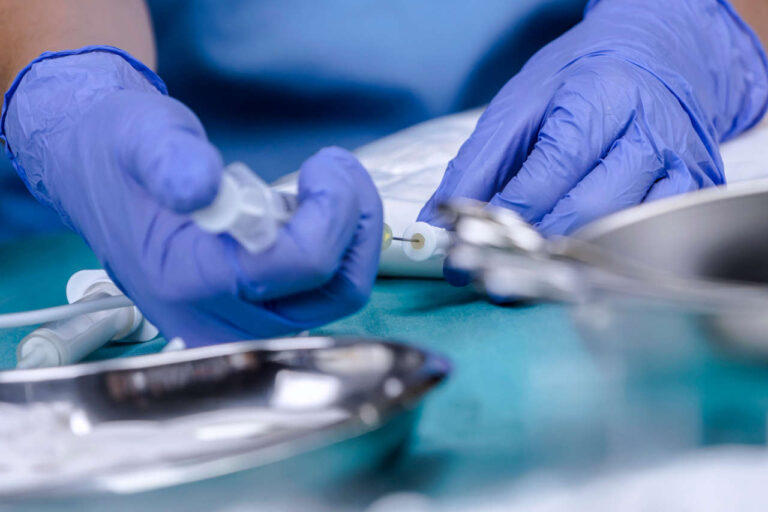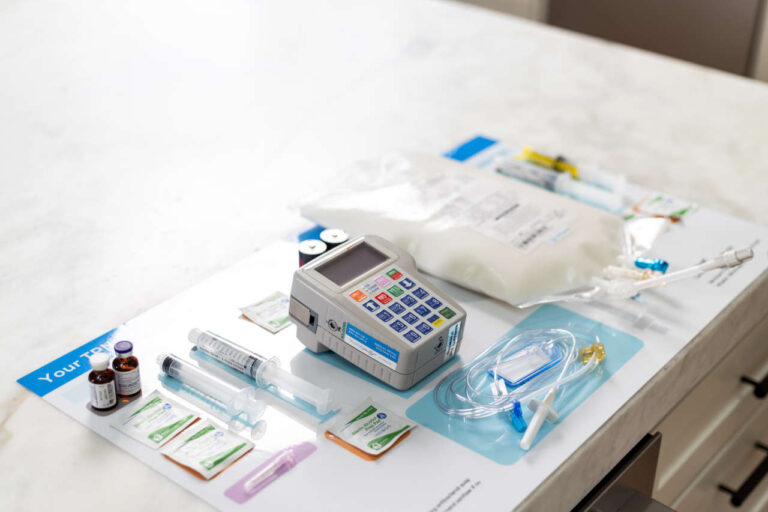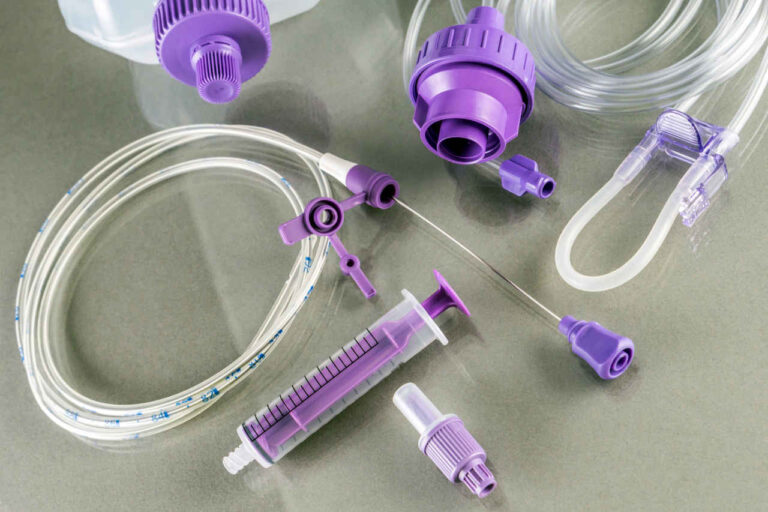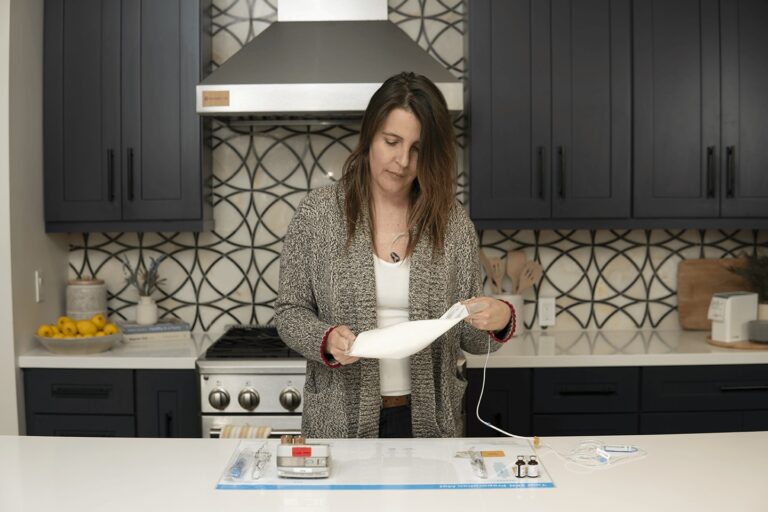
While TPN can be a life-saving treatment option for people who cannot get enough nutrition through conventional ways, it also has some potential side effects.
Speak to a Specialist About Copay Assistance
Some patients who receive TPN experience diarrhea, which can be concerning for both patients and healthcare providers, as it can lead to dehydration and electrolyte imbalances. However, their diarrhea can also be the result of other factors.
So, can TPN cause diarrhea?
That is the question we will answer here as we look closer at TPN therapy and its potential side effects.
Understanding TPN
Total parenteral nutrition (TPN) is a feeding method for people who cannot tolerate enteral feeding, such as:
- Those with chronic pancreatitis
- Individuals with malabsorption disorders
- Cancer patients undergoing chemotherapy
- Patients with gastrointestinal obstruction or motility disorders
- Patients with Crohn’s disease and other inflammatory bowel syndromes
TPN delivers all the necessary nutrients through an IV line to the bloodstream. It bypasses the digestive system altogether. What is in a TPN solution determines the risk of diarrhea.
A nutritionist will examine a person’s age, sex, weight, and medical condition to suggest a specific mixture of nutrients that meets their needs. The solution usually contains a balanced mix of macronutrients, essential fatty acids, electrolytes, vitamins, and trace elements.
How Can TPN Cause Diarrhea?
How can TPN cause this side effect, while some studies show that parenteral nutrition can help manage chronic diarrhea?
It all depends on the individual, their medical condition, and the mixture of nutrients they receive through TPN.
Here are some of the ways TPN might cause diarrhea:
Excessive Glucose
TPN solutions contain a high concentration of glucose. Glucose is the primary source of fuel for the body. It is included in TPN solutions to meet the body’s energy needs.
A high glucose concentration in the body can lead to hyperglycemia, an excess of sugar in the blood, which can overwhelm the gastrointestinal system.
When the body receives more glucose than it can absorb, the excess glucose pulls water into the intestines, leading to loose stools and diarrhea.
Excessive Fat
Lipids are another component of TPN solutions that might lead to diarrhea. TPN solutions often have an excessive fat content to provide the body with essential fatty acids and extra calories.
However, some patients may have difficulty tolerating this fat load. They might experience malabsorption that contributes to the development of steatorrhea, a condition characterized by fatty, greasy stools.
Excessive amounts of fat can also lead to the production of short-chain fatty acids in the gut. These fatty acids can cause irritation and inflammation of the intestinal lining, leading to diarrhea.
Hyperosmolar Solutions
Another way TPN can cause diarrhea is through the osmotic effect. TPN solutions are highly concentrated and can be hyperosmolar. This hyperosmolarity means they have a higher concentration of substances like glucose and electrolytes than the body’s natural fluids.
The hyperosmolarity caused by TPN is what leads to diarrhea. It can create an osmotic effect, drawing water into the intestines and leading to increased bowel movements and diarrhea.
This osmotic diarrhea is more prominent in people with compromised gastrointestinal function, such as those with inflammatory bowel disease or short bowel syndrome.
Changes in Nutritional Absorption
Changes in nutrient absorption are among TPN’s complications that many might experience.
These changes occur due to direct delivery of nutrients into the bloodstream. Bypassing the digestive system in this way can disrupt normal digestion and absorption, causing undigested nutrients to pass through, leading to irritation and inflammation.
This effect of TPN can contribute to diarrhea by altering the structure and function of the intestines and causing irregular bowel movements.
Bowel Problems
TPN can also cause diarrhea by creating bowel problems.
Patients on TPN are more susceptible to bowel disorders, such as the overgrowth of bacteria in the small intestines. This overgrowth can lead to excessive fermentation, producing gas and other by-products that result in diarrhea.
Bypassing the gastrointestinal tract and not using the intestines while on TPN can also lead to intestinal atrophy. This lack of physical stimulation of the small intestine can reduce gastrointestinal motility.
All of these bowel problems caused by TPN can lead to diarrhea.
Imbalance of Gut Flora
The gut flora is a diverse community of beneficial bacteria, yeasts, and other microorganisms that help with proper digestion and absorption of nutrients.
TPN can disrupt the balance of natural gut microbiota by bypassing the regular route of nutrient delivery through the digestive tract. As a result, the gut will have more harmful microorganisms than beneficial ones.
The imbalance caused by TPN therapy can lead to changes in bowel habits and cause gastrointestinal symptoms like diarrhea.
Overfeeding
Overfeeding or rapid infusion of TPN can also lead to diarrhea by overwhelming the digestive system and causing gastrointestinal distress.
Overfeeding means providing more nutrients than the body can handle. It can overwhelm the digestive system’s absorptive capacity and lead to diarrhea.
Rapid infusion of TPN can also exceed the body’s ability to manage the incoming nutrients, leading to an osmotic effect and causing diarrhea as the body attempts to eliminate the excess nutrients.
Ask About TPN Home Infusion
Infections
One of TPN’s side effects that can cause diarrhea is infection. Infections caused by TPN lead to diarrhea as the body’s immune system attempts to expel the invading pathogens.
Using central venous catheters in TPN therapy can increase the risk of infections, such as bloodstream infections and sepsis. This risk increases if the TPN catheter site becomes contaminated and the administrator doesn’t follow standard hygiene protocols.
Infections such as Clostridium difficile (C. diff) are also more common among TPN patients. This bacteria can lead to antibiotic-associated diarrhea, while the infection can spread to other body parts and cause further complications.
How to Prevent Diarrhea in TPN Patients

Adjusting to your life with TPN is challenging as it is. While diarrhea is a rare occurrence in patients receiving TPN, having to deal with it only adds to the challenges of this treatment.
There are several strategies healthcare providers and patients can use to prevent or manage diarrhea with TPN. Let’s look at some of them.
Proper TPN Formulation
Proper TPN formulation is critical in preventing diarrhea.
The TPN formula must be balanced with appropriate amounts of carbohydrates, proteins, fats, vitamins, and minerals to meet the patient’s needs without overloading the digestive system.
Ensuring the solution is mixed and sterilized well can also reduce the risk of diarrhea developing from TPN.
Gradual Introduction
By gradually introducing TPN, you can avoid causing diarrhea. The body needs time to adjust to receiving nutrition through the bloodstream, and a sudden influx of nutrients can overwhelm the digestive system.
Start slow and gradually increase the infusion rate to allow the patient’s digestive system to adjust to the delivery route.
Monitor for Tolerance and Overfeeding
Monitoring for tolerance and overfeeding is another crucial aspect of preventing diarrhea. Watch the recipient closely for signs of:
- Malabsorption
- Gastrointestinal distress
- Changes in bowel habits
Regular assessment of bowel function and stool output can help identify early signs of intolerance or overfeeding. This allows you to adjust the formula or infusion rate and prevent diarrhea from TPN therapy.
Infection Control
Implement strict infection control measures such as proper hand hygiene, cleansing, and disinfecting of equipment to prevent central line-associated bloodstream infections.
Adhering to sterile techniques during TPN administration, regular catheter care, and prompt management of any signs of infection can help you avoid causing diarrhea with TPN therapy.
Address Fluid Balance
People receiving TPN are at a higher risk of dehydration due to the absence of oral intake.
You must ensure proper hydration and manage fluid balance to prevent dehydration, reduce the risk of diarrhea, and maintain gut integrity and function.
Watch Out for Electrolyte Imbalances
Keeping a close eye on the patient’s electrolyte levels is another crucial aspect of preventing diarrhea in TPN patients.
Imbalances in electrolytes such as potassium, sodium, and magnesium can lead to gastrointestinal disturbances. Detecting these imbalances allows you to adjust the formula and minimize the risk of diarrhea.
AmeriPharma Specialty Care
Total Parenteral Nutrition | Leader In TPN Assistance
Dietary and Lifestyle Modifications
While the TPN solution provides essential nutrients, recipients may still experience gastrointestinal discomfort if they eat food orally.
Making dietary and lifestyle modifications, such as exercising, can help manage gastrointestinal function and reduce the likelihood of diarrhea.
Medications
If you are still experiencing diarrhea from TPN therapy after implementing these strategies, you can turn to medications for help.
Consult your doctor to find the most effective medications for your condition and stick to your treatment plan to avoid further complications.
Receive At-Home TPN Therapy with AmeriPharma™ Specialty Pharmacy
Now that you know that TPN can cause diarrhea, you can implement our strategies to avoid it and consult your healthcare provider if you notice any unusual signs.
If you want to receive at-home TPN therapy with a reduced risk of diarrhea, AmeriPharma™ Specialty Pharmacy can help.
We deliver TPN home infusion materials to your door in discreet packaging and help you troubleshoot any problems. Our specialty pharmacy can also send specialized infusion nurses to your home to administer your treatment. You can meet your dietary needs with our full-service coordination, 24/7/365 support, and copay assistance.
Contact us now to speak to a patient navigator and receive specialty care at home.

